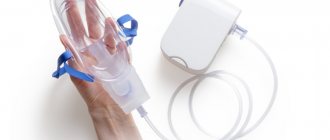Who are Ikotka and Pam? We talk about mythical creatures from the series “Territory”
Residents of some villages in the north of the Perm region still believe in creatures from the legends of the Komi-Permyaks.
After the launch of “Territory” (16+) on television, Internet users from all over Russia began to actively “Google” the names and origins of the Komi-Permyak monsters that the heroes of the series face. Ikotka and Pam aroused particular interest among fans.
“Vkurse.ru”, together with the deputy dean of the Faculty of Philology for the Komi-Permyak-Russian department of the PGGPU Alevtina Lobanova, figured out the origin of Ikotka and Pam and found out whether they exist in our time.
What does Hiccup look like?
On the Internet, information about Ikotka’s appearance varies extremely. Some describe this creature as something similar to mold, others say that Hiccup looks more like a black liquid. Alevtina Lobanova says that there is no reliable description of Ikotka in any archival document. The creature was described as a white butterfly, a white liquid, and even a small mouse.
Photo: modern vision of Ikotka. Artist Igor Skaletsky
A person will only be able to see the mythical creature if it is exiled, the professor says.
How does Hiccup possess people?
The creature always enters a person through the mouth and only to adult women, says the deputy dean of PGGPU. According to legend, it is enough to swear obscenely on the street or drink water or kvass in someone else's house.
“Mom kept swearing that red-haired Vanka infected her. We had such a man in the village. She said that she drank his mash, but she doesn’t know why. And when Ikotka woke up in her, she told her mother that she couldn’t get out of her - her tail was stuck. Ikotka said that my mother was “cokoraya” (thin - editor’s note), and my mother did not swear or drink, recalls Alevtina Lobanova’s childhood story.
A teacher at the Perm Pedagogical University claims that in her home village in the Komi Okrug, every second woman had Ikotka. She did not interfere with life; everyone lived to a ripe old age, managed the household alone and raised children. Well, if this entity bothered someone too much, healers came to the rescue.
How do you understand that Hiccup has possessed you?
According to Alevtina Lobanova’s description, a person begins to feel a kind of obsession. But, unlike the events in the series “Territory”, Ikotka does not pose any danger. The professor claims that the creature only talks to its host, and the “infected” woman herself begins to speak while inhaling, and not exhaling, like ordinary people.
Who is Pam?
In addition to Hiccup, who possessed the main character of “Territory,” a certain Pam is often mentioned in the series. Little is known about him, because, according to Alevtina Lobanova, there is very little information about this creature even in legends.
Photo: cultural map of the Komi Republic
- Pam is an evil creature. I know that he could cause damage, and they turned to him for this. You can compare it with an evil sorcerer. Among the Komi-Permyaks in the south, this name does not function,” says the PGGPU teacher.
In search of Ikotka and Pam
The action of the series “Territory” takes place in the village of the Kudymkar region of the Kama region in our days. According to the scenario, dozens of local villagers sincerely believe that the monsters from the legends exist and really do not like strangers in their land.
It turned out that this was not the writers’ imagination. Every year, philology students travel to similar villages in the north of the Perm region to study the stories of the Perm Komi people. True, there are fewer and fewer people who remember ancient legends every year.
— Deep in the villages, the belief that a person’s life and health can be magically influenced still exists. About 20 years ago, in my village, across the house lived sorcerers and healers who treated diseases and cursed. Now the village is dying out,” shares Alevtina Lobanova. - So, just recently the last woman in whom Ikotka was sitting died. Our students visited her, researchers came to her. She was always sharing stories.
According to researcher Lobanova, there are especially many such mystical villages left in the north of the region, that is, in the Gainsky and Kosinsky regions.
What is hiccups and where does it come from?
Hiccups occur when the diaphragm reacts to certain factors by contracting. Medicine suggests that hiccups are necessary for the fetus in the womb to ensure the movement of amniotic fluid through the respiratory system. Often, a pregnant woman can feel the rhythmic tremors of the unborn baby, which are hiccups.
Medicine knows several cases of prolonged hiccups, the duration of which was more than two decades. Separate studies have identified settlements in which hiccups appear more often than in the rest of the country. The curiosity of scientists forced them to pay special attention to a number of factors that provoke hiccups, which prevail in each specific region.
The diaphragm is a flat, broad muscle that separates the chest from the abdominal cavity. When it contracts sharply, a spasm of the lungs occurs, which does not go unnoticed by the entire respiratory system. Air passing past the vocal cords may be accompanied by sound.
Healthy man
If a person is healthy and there are no visible difficulties with internal organs, diaphragm spasm can develop due to the following conditions or factors:
- After meal. A large portion was eaten on the run, chewed quickly and little. The bad habit of drinking water or other liquids leads to disruption of the digestive system. The stomach stretches and can affect the vagus nerve. Carbonated drinks and other foods are to blame, the consumption of which leads to bloating and distension of the stomach.
- While eating. Talking while eating, swallowing large pieces and drinking leads to the accumulation of gases in the organ, and water prevents acid from digesting food normally. The stomach stretches, presses, and an unpleasant phenomenon occurs.
- Alcohol. Drinking alcoholic beverages inhibits the functioning of the brain, which is responsible for satiation, and at the same time the transmission of impulses to the digestive system is disrupted. As a result of drinking large doses of alcohol, eating a snack, or drinking alcohol on an empty stomach, the stomach swells and causes drunken hiccups.
- Severe hypothermia. When freezing, the bloodstream begins to intensively supply blood to vital organs, including the respiratory system.
- Smoking with coffee, which occurs when the stomach is empty, leads to contraction of the diaphragm and the occurrence of spasms. Also, an acute respiratory infection can cause hiccups.
- The unhealthy ecology of the surrounding world does not contribute to the normal course of physiological processes in the human body.
- Stress or fear often provokes spasms.
- Certain types of medications can cause disturbances in the functioning of the diaphragm.
- After laughter, especially long-lasting, there is a disruption in breathing and a reflex contraction occurs inside.
These reasons can only cause a temporary, sharp attack of an unpleasant condition. The duration does not exceed 20 minutes and passes either after belching or other actions that help move the food bolus further along the canal of the digestive system.
A way to get rid of hiccups at home: hold your breath for a few seconds, then relax.
Causes of hiccups
Hiccups can occur for several reasons:
- with hypothermia;
- due to stress;
- when overeating or consuming food quickly;
- due to dry food.
There are also neurological disorders that provoke reflex contraction of the diaphragm. For example, if the vagus nerve, which transmits a signal from the lungs to the brain that a breathing movement needs to be made to inhale or inhale, begins to send false commands to contract the diaphragm.
A nerve irritated by external factors sends false impulses not only to the brain, but also to the spinal cord. As a result, the central nervous system causes the muscles of the respiratory system to contract. These movements can be compared to convulsions. The respiratory center of the brain loses its ability to control the process. The epiglottis occupies a position in the trachea that is characteristic of the swallowing reflex. The vocal cords close together.
This contraction of the respiratory system can occur both during inhalation and exhalation. It is impossible to stop the process with one effort of will. Rare episodes of hiccups do not pose any health hazard. However, regularly occurring spasms should be a reason to seek help from a specialist.
How to get rid of hiccups
The most effective method of stopping hiccups is called breathing into a bag. This is explained by the fact that by saturating the blood with carbon dioxide, we concentrate the vagus nerve on the fact that the body needs a full breath. And this allows you to stop the random sending of signals to the brain, causing the diaphragm to contract in spasms.
The second effective way to get rid of accidentally attacked hiccups is to drink water, standing in a bird pose: fix your arms along your body, like folded wings, and tilt your body forward to reach a glass of water. This requires outside help, because someone has to hold the glass. You need to drink in small sips, stretching your neck.
The third, and most famous method is to take more air into your lungs and hold your breath for as long as possible. In this way, it will be possible to push through the diaphragm with your lungs and keep it in a calm position.
Complications that hiccups can lead to
There is an opinion that a person can die from prolonged hiccups. However, this is a myth. Death from hiccups has never been recorded. But the cause of hiccups can be deadly.
For example, if hiccups are caused by cancer or problems with the cardiovascular system, the patient risks losing his life, but the hiccups are not to blame.
Frequently occurring intense attacks can lead to insufficient oxygen saturation of the blood, and at the same time to its oversaturation with carbon dioxide. This is a direct path to hypoxia of brain tissue. Therefore, if you suffer from hiccups often, you need to talk about it first with a therapist. After collecting anamnesis, he will refer you to a specialist. This serious condition is extremely rare, but it does happen.
Severe hiccups can also cause side pain, which is often experienced by beginner athletes while running. This is due to the constant shocks of the diaphragm, which, with its contractions, also affects the abdominal organs.
If hiccups are painful day after day, it interferes with sleep, which is why a person does not get enough sleep, feels exhausted and is constantly tired. In this case, hiccups provoke depressive disorders.
During business negotiations, a cat puts a person in an awkward position. In this state, not everyone will dare to approach a manager or partner to resolve serious issues.
Hiccups in pregnant women
Hiccups during pregnancy are normal and do not require medical intervention. It occurs especially often in the later stages, when the uterus occupies most of the abdominal cavity, constricting all other organs. And the fetus, with its periodic physical activity, adds inconvenience not only to the bladder and intestines, but also to the diaphragm and lungs.
Along with obvious physiological changes associated with the location of internal organs, hormonal changes can also cause hiccups. Toxicosis is another phenomenon that causes hiccups in the early stages. If each morning begins with nausea and vomiting, this may affect the spasms of the diaphragm, causing hiccups.
It's worth discussing frequent hiccups with your obstetrician if they cause pain or other problems. If hiccups come from time to time and go away on their own without causing obvious discomfort, it does not require treatment, because it is not dangerous for the expectant mother.
general characteristics
A sudden attack of hiccups may be preceded by overeating, fast food with poor chewing of hard and dry foods, swallowing air, and drinking highly carbonated and alcoholic drinks.
In young children and sometimes in adults, hiccups are triggered by hypothermia. Some patients begin to hiccup after taking muscle relaxants, barbiturates, benzodiazepines and other medications. Often the symptom appears for no reason and goes away on its own within a few minutes. At the time of an attack, a person experiences jerky muscle contractions in the epigastric region, accompanied by protrusion of the anterior abdominal wall and a strangled sound. Due to the closure of the glottis, breath holding occurs for a short period of time. A special feature of hiccups is the impossibility of conscious control. With intense hiccups, moderate pain is sometimes noted behind the sternum, in the lower parts of the chest. An attack of hiccups is characterized by rhythmic muscle contractions at approximately equal intervals.
Prolonged, especially pathological hiccups often have a debilitating effect and may be accompanied by irritability, emotional instability, increasing asthenia, vegetative manifestations - sweating of the palms, paleness or redness of the skin, a decrease in the temperature of the skin of the distal extremities. For episodes that repeat several times a day or several days a week, last more than an hour and are combined with other disorders (heartburn, pain, shortness of breath, etc.), you should seek medical help.
Possible consequences
Are hiccups so harmless? If attacks occur over a long period of time, this significantly worsens the patient’s quality of life. Persistent and persistent hiccups exhaust a person. The patient's sleep deteriorates, swallowing and breathing problems occur, body weight decreases, and fatigue appears. Medicine knows of cases where postoperative sutures did not heal well in surgical patients due to hiccups.
Therefore, if such a problem has been bothering you for a long time, then you should not expect that everything will go away on its own. You need to see a doctor, determine the cause of the hiccups and undergo a course of treatment.











